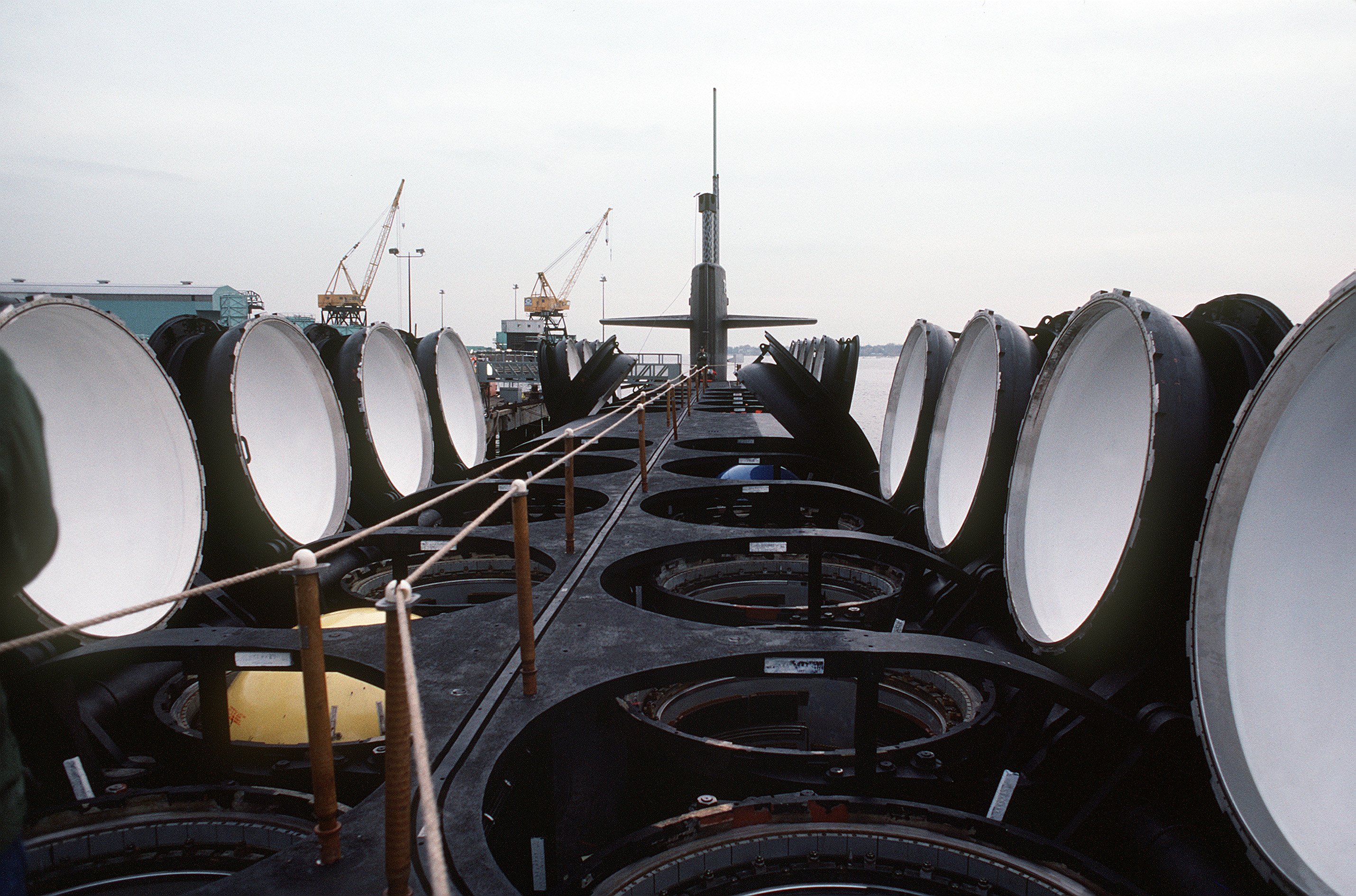
The admiral responsible for the nuclear weapons component of ballistic missile submarines today praised the “truly unique” relationship with the British naval officers who have similar responsibilities, and said that historic cooperation would not be affected by Thursday’s vote to have the United Kingdom leave the European Union.
Vice Adm. Terry Benedict, director of the Navy’s Strategic Systems Programs, said that based on a telephone exchange Thursday morning with his Royal Navy counterpart, “I have no concern.” The so-called Brexit vote – for British exit – “was a decision based on its relationship with Europe, not with us. I see yesterday’s vote having no effect.”
Benedict said that “for more than 52 years the U.S. and U.K. have maintained a shared, common commitment to nuclear deterrence,” which “formally allows our missile systems to be provided to the United Kingdom as part of its independent deterrent capability.”
In addition to sharing the Trident II D5 missiles, the two navies are jointly developing the common missile compartments that will go into the replacements for both the American Ohio-class ballistic missile submarine and the British Vanguard-class strategic submarines.
“We will continue to maintain this strong strategic relationship to ensure a reliable and relevant strategic weapons system is deployed today on our Ohio and the U.K. Vanguard class as well, in the future, on the respective follow-on platforms,” Benedict said.
While heavily involved in the Ohio replacement program, which he called the Navy’s top acquisition program, Benedict listed the service life extension for the D5 missiles as his number one priority
“The Trident was planned originally for a service life of only 25 years. However, it will serve throughout the remaining service life of the Ohio and Vanguard classes, and it will be the initial on-load of the Ohio replacement and (Vanguard) successor submarines,” taking it “long beyond its original service life,” he said.
Life extension therefore “is essential to ensuring that the Trident remains the successful sea-based deterrent that it has been since the early ‘90s,” Benedict said.
Prolonging the operational life of the D5 requires upgrading or replacing all the strategic weapon systems and subsystems – launchers, the navigation system, fire control and guidance electronics and the W88 nuclear warheads in the Trident’s reentry vehicles, he explained.
The continued reliability and accuracy of the updated missiles is being tested in an extensive schedule of flight tests in preparation for a planned initial operational capability in Fiscal Year 2017.
Benedict said his second priority was his role in ensuring that “the Ohio replacement is designed, built, delivered and tested on time, with the right capability and at an affordable cost.”
The admiral explained that SSP shares responsibility for the Ohio replacement with the Program Executive Office for Submarines, which has to integrate the entire boat, and with Naval Nuclear Propulsion Program, which is developing the new nuclear power plant that is supposed to last the entire life of the new submarines without nuclear refueling. Benedict said he has the middle of the boat, with the launch tubes and strategic control systems.
“All three pieces have to come together” to produce a strategic deterrent that is expected to serve past 2080, he said.
While focusing on extending the operational life of the Tridents, Benedict said his office also is beginning work on a new strategic missile to replace them sometime in the future. In that effort, he has been cooperating with the Air Force, which is actively seeking a replacement for its Minuteman III ground-based strategic missiles. The primary focus appears to be on finding as many common subsystems as possible to help both services save money.
Although the admiral gave a strong endorsement to all three legs of the nuclear deterrent Triad, he pointed out that the Navy provides not only the “most survivable” leg, but is responsible for 70 percent of the deployed nuclear warheads under the 2010 New Start Treaty with Russia that limits each nation to 1,550 deployable warheads.




